License in Bilingual EducationHenry Predolin School of Nursing, Business, Education, and Health Sciences
Unique teaching opportunities
The Bilingual Education program at Edgewood University prepares educators for the important and meaningful work of teaching multilingual learners in a setting where students are learning in two languages. The program is designed to meet your professional goals by offering program options that can either stand-alone or build upon one another towards a Masters of Arts in Bilingual Education.
- Curriculum embraces an anti-racist, strength-based approach to teaching multilingual learners
- Instruction that is transferable to teacher practice
- Emphasis on collaboration and building professional community
- Individual advising and support throughout the program
- Course meetings accommodate working schedules
The Bilingual Education Licensing sequence prepares students to pursue the Wisconsin DPI Bilingual Education license. The Bilingual Education license (023/1023) is a supplemental license allowing teachers to teach subjects in two languages. The program entails coursework, a semester of student teaching, clinical evaluations aligned to the standards, a portfolio, and demonstration of language proficiency.
The Bilingual Education license is an add-on license that can be added on to an initial license.
Madison, WI
Hybrid
18
Program Highlights
- 12 months of licensure coursework plus student teaching (18 credits)
- Start in Fall, Spring or Summer semesters
- 8-week accelerated courses accommodate traditional work schedules
- Courses include 3 synchronous sessions with online learning in between
- Courses can be applied to a Master’s Degree by completing 15 additional credits (33 total)
Featured Courses in Bilingual Education
EDU 631 – Second Language Acquisition Content
This course explores theories of language development and factors that influence language acquisition. Students apply observation and assessment alongside language development standards, using information to develop language goals. Course focuses on content-driven language learning and on using data sources to propose supportive teaching and programming for multilinguals. Activities apply to practitioners in bilingual and English-medium settings.
EDU 638 – Biliteracy Development
This course prepares bilingual educators for developing reading and writing among preK-12 students learning in two languages. Using a case study approach, participants will carry out formative assessment of literacy and language behaviors with a focus student or student group. They will use observation and analysis to design biliteracy instruction that honors student strengths across languages and across domains. Class sessions will incorporate collaboration and reflection of case studies in different contexts, addressing factors that impact biliteracy development. This course builds knowledge of foundational skills, reading strategies, writing, reading comprehension, and reading fluency. Readings and activities will be carried out in Spanish and English.
EDU 637 – Language Analysis & Bilingualism
This course builds deep knowledge of language through lenses of Functional Linguistics, Critical Language Awareness, and Translanguaging theory. Activities show how to investigate language and use knowledge of language to plan contrastive analysis, translanguaging opportunities, and cross-linguistic transfer. Students explore the unique experience of developing multilingualism in the United States, considering the role of social and psychological factors. Focus is on the connection between language ideologies, policies, and practice, to promote critical consciousness in dual language spaces. Bilingual proficiency required.
Faculty Spotlights
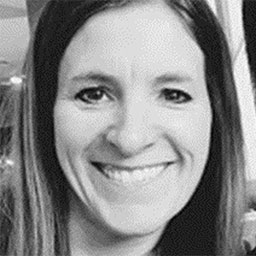
Amy Christianson
Director of Satellite Family Child Care System
Amy Christianson has been in the field of education for 22 years working in K-12, Institutions of Higher Education, and early childhood settings. She received her Bachelor’s degree in early childhood education and English as a Second Language (ESL) from UW-Milwaukee. She also obtained her Master’s degree from Cardinal Stritch University and Doctoral Degree from Edgewood University in field of Educational Leadership. Amy’s teaching licenses are early childhood education and ESL, and her administrative licenses are principal, director of instruction, and superintendent.
achristianson@edgewood.edu
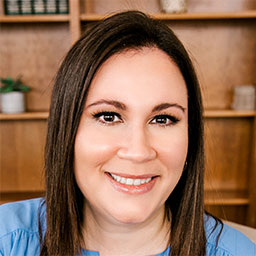
Arabel Marcano Colón
High school dual language immersion teacher in social studies | Madison Metropolitan School District
Arabel earned a BS degree in Secondary Education in History from the University of Puerto Rico and an MA in Curriculum and Instruction in History, from Caribbean University in Puerto Rico. She completed a doctoral program in Education Leadership in Edgewood University. Her dissertation titled Mainstream Teachers’ Perceptions about Professional Development Needs to Support English Language Learners, came from her passion to help English Language Learners (ELLs) succeed in the classroom and was inspired by her own lived experience as an ELL.
Amarcanocolon@edgewood.edu
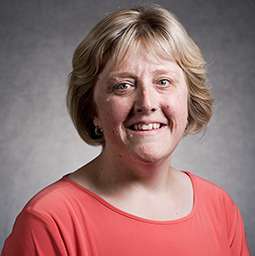
Sarah Huse
Professional Development Teacher Leader | Madison Metropolitan School District
Sara Huse has a strong passion for bringing practical strategies to educators in the TESOL licensure program. She began her career as a third-grade bilingual teacher and has taught extensively at the elementary and middle school level. She is currently a Professional Development Teacher Leader in the Madison Metropolitan School District, focusing primarily on coaching teachers serving English Learners.
shuse@edgewood.edu
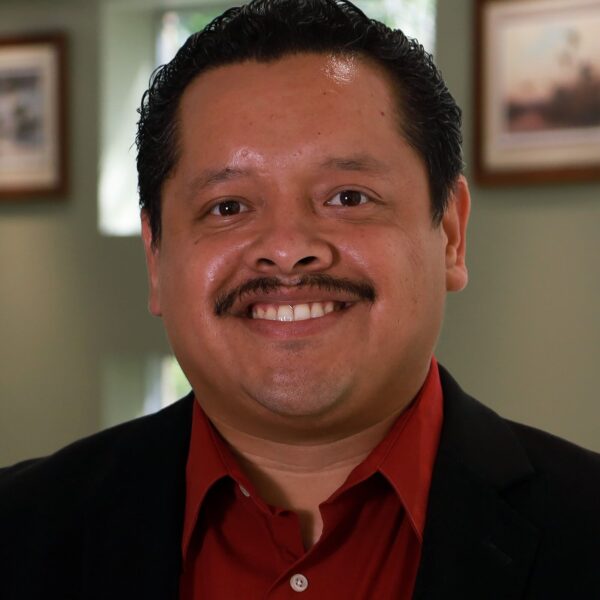
Gerardo Mancilla
Director of Curriculum and Instruction | Coordinator of Elementary/Middle Education Undergraduate Licensing Programs | Associate Professor
Gerardo Mancilla is an Associate Professor of Education for both the undergraduate and graduate programs. He holds a B.S. in Elementary Education, M.S. in Curriculum & Instruction, M.S. in Counseling Psychology, and Ph.D. in Curriculum & Instruction, all from the University of Wisconsin-Madison. Prior to working at Edgewood University, Gerardo was working for the Madison Metropolitan School District where he was a Dual Language Immersion teacher. Gerardo teaches both undergraduate and graduate courses at Edgewood University. Gerardo’s research interests include Critical Race Theory, LatCrit, the school-to-prison pipeline, bilingual education, and immigration. Gerardo has also been active in the Madison community for many years.
gmancilla@edgewood.edu
Masters of Arts in Education in Bilingual Education
Completing the Master of Arts in Education degree will give you the skills and knowledge to become a leader of Bilingual Education in your school or district. The Master of Arts in Education: Bilingual Education requires completion of the 18 credits listed in the License Sequence, plus five 3-credit courses listed below. 33 credits total. For licensure plus a master’s degree, add the following courses:
Related Programs
-

On-campus
Bachelor of Arts in Spanish -
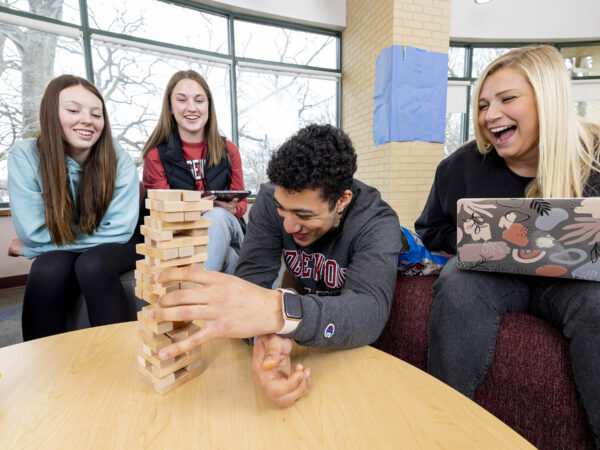
On-campus
License in Special Education -
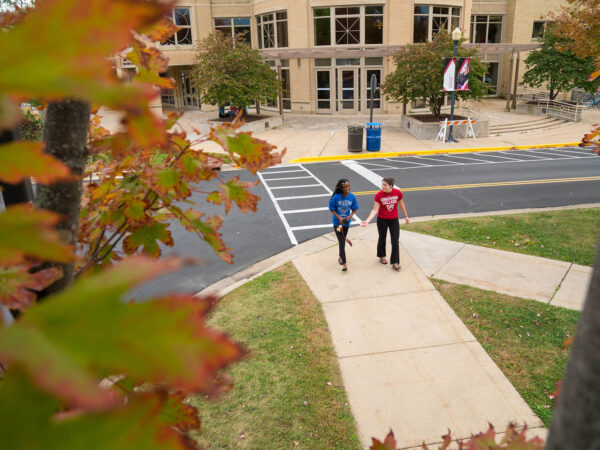
On-campus
Accelerated Secondary Program (ASP)
Frequently Asked Questions about License in Bilingual Education
What are the admission requirements for this program?
New students may start their program at five entry points throughout the year. Please note priority deadline dates.
Fall Session I – August 1 (August start)
Fall Session II – October 1 (October start)
Spring Session I – January 2 (Jan start)
Spring Session II – March 1 (March start)
Summer Session – May 1
All required application materials should be submitted by deadlines. Applications received after deadlines will be reviewed on a case-by-case basis. Questions? Contact Sara Shaten, sshaten@edgewood.edu, 608-663-3145.
Admission Requirements
- Provide evidence of a baccalaureate or more advanced degree from a regionally accredited or equivalent postsecondary institution with a cumulative grade point average of at least 2.75 on a 4.0 scale for regular admission status. The cumulative grade point average is computed on the highest degree held at the time of application to the Edgewood University graduate program.
- Request that official transcripts for all undergraduate and graduate academic credits received from each post-secondary institutions that you have attended.
- Submit a written statement listing the reasons that you will be successful in graduate school: cite how specific background experiences will aid in your success as a student.
- Provide evidence of a WDPI initial educator, professional educator, or master educator license (or the equivalent).
International students must contact Graduate and Professional Studies for additional admission requirements.
Can I transfer credits from a different institution towards this program?
You may submit up to 12 semester hours of graduate credit for consideration of transfer to Edgewood University for application to a degree program. Approval of the respective department is required. To be considered for application to a degree program, a course must have been taken within the past five years. For more information about transfer credits, please contact your admissions counselor.